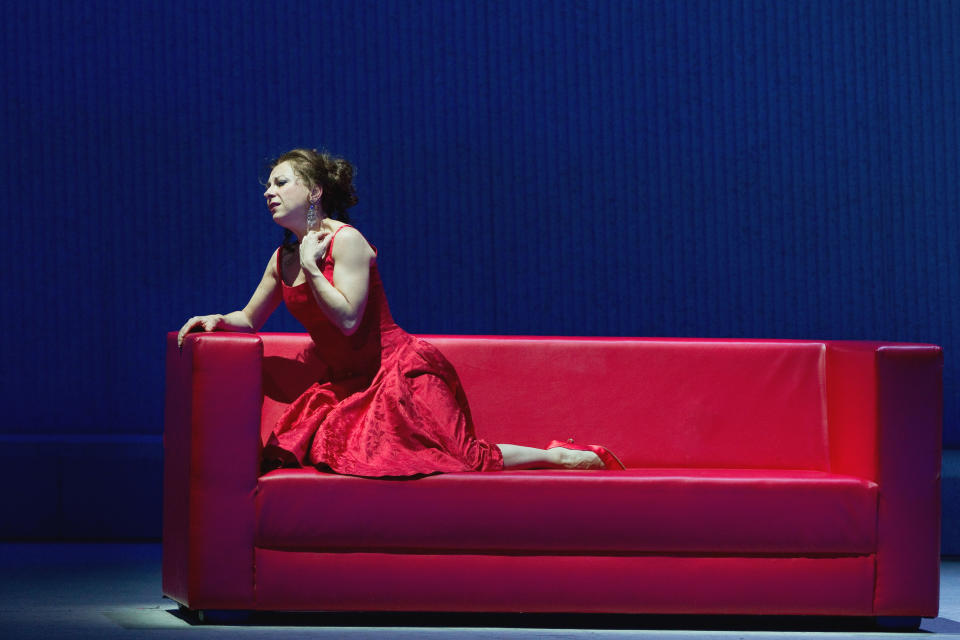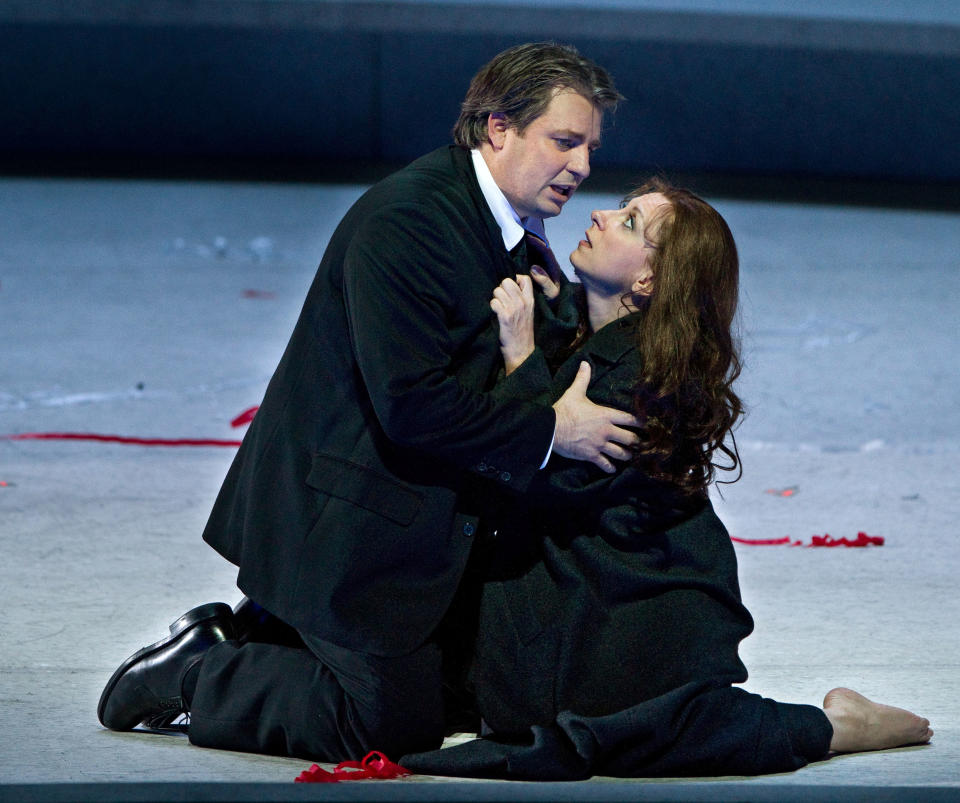Dessay takes over title role in "Traviata"
NEW YORK (AP) — Though she looked frail and at times produced a mere wisp of sound, the diminutive French soprano Natalie Dessay had no trouble filling the vast stage of the Metropolitan Opera in Verdi's "La Traviata."
After missing opening night because of a cold, Dessay was back Tuesday to take over the role of Violetta in the radically updated production by Willy Decker.
From her first entrance during the prelude, looking exhausted and barely able to walk in her red dress and matching high heels, Dessay captured the essence of a party girl for whom the party is all but over. Pulling herself together with the arrival of guests, she exuded a forced gaiety and let out a whoop that was more desperate than exuberant as she was carried aloft by a chorus of male admirers.
Throughout the evening, Dessay provided what this brilliant production so urgently requires — the star power of a singing actress whose magnetic personality and physical agility can involve us deeply in Violetta's tragic struggle for happiness.
There were numerous touches that made her portrayal special — the delicate coloring she gave to the word "misterioso" as she pondered whether her new admirer, Alfredo, might be the love of her life; the despairing anger with which she spit out the words "E tardi!" ("Too late!") after reading the letter from Alfredo's father; and the way her eyes widened at the word "rinasce" ("reborn") when, just before dying, she imagines herself regaining strength.
She seemed to invigorate her co-stars as well. Baritone Dmitri Hvorostovsky as Alfredo's father was even more imposing than on opening night, while tenor Matthew Polenzani acted with an ease and ardor that had been only fitfully apparent before.
Vocally, Dessay sang with bright, forward tone, tinged with a distinctive plaintive quality, allowing her small voice to project well into the house — except on a few occasions when she got swallowed up by an ensemble.
At times she turned her limitations to advantage: When she agreed to relinquish her lover to save his family's honor, she sang the opening lines of "Dite alla govine" ("Tell the young girl") in a near-whisper, to heart-rending effect.
Though she started her career as a coloratura specializing in stratospheric parts, the upper reaches of her voice have now become problematic, and the effort it costs to reach above high C is apparent. She took the optional E-flat at the end of "Sempre libera," but the note was more approximated than hit dead-on.
There are six more performances, including this Saturday's matinee, which will be broadcast live on the radio and shown in HD in movie theaters.





